True Grit
 for some intense sequences of western violence including disturbing images.
for some intense sequences of western violence including disturbing images.
Reviewed by: Scott Brennan
CONTRIBUTOR
| Moral Rating: | Better than Average |
| Moviemaking Quality: |
|
| Primary Audience: | Adults Teens |
| Genre: | Western Adventure Drama Remake |
| Length: | 1 hr. 50 min. |
| Year of Release: | 2010 |
| USA Release: |
December 22, 2010 (wide—3,000+ theaters) DVD: June 7, 2011 |
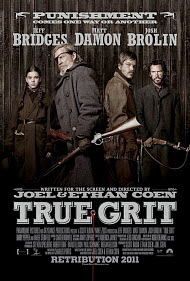

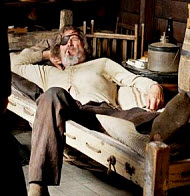
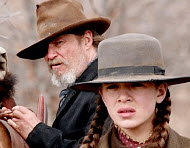
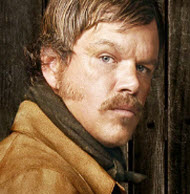
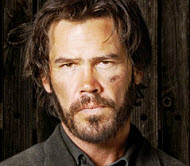
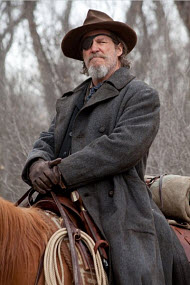
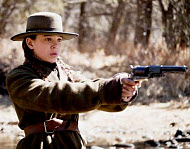
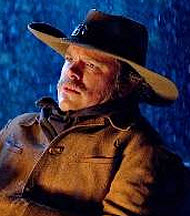
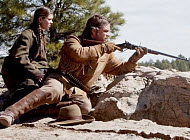
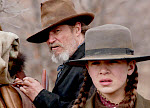
About murder in the Bible
death in the Bible
Will all mankind eventually be saved? Answer
drunkenness in the Bible
| Featuring |
|---|
| Matt Damon (La Boeuf), Jeff Bridges (Marshal Reuben J. Cogburn), Josh Brolin (Tom Chaney), Domhnall Gleeson (Moon), Hailee Steinfeld (Mattie Ross), Barry Pepper (‘Lucky’ Ned Pepper), See all » |
| Director |
|
Ethan Coen, Joel Coen |
| Producer |
| Paramount Pictures, Skydance Productions, Scott Rudin Productions, Mike Zoss Productions, See all » |
| Distributor |
“Retribution”
It is one of the year’s best films, hands down. Leave it the Coen brothers to keep both the “true” and the “grit” in their rendition of this superb remake. Just because the art of filmmaking has evolved dramatically over the past 41 years since the original “True Grit” doesn’t mean the new version will outdo the old. More often than not, it usually doesn’t. However, in the opinion of this reviewer, the new “True Grit” is better than the first—and on so many levels. Starting with the Scripture that went up on screen in the first minute:
The wicked run away when there is no one chasing them… (Prov. 28:1).
The story is simple, but profound. Mattie Ross (Hailee Steinfeld) heads out in the beginning to set right her father’s affairs. He was shot dead in a nearby town by his own employee, Tom Chaney (Josh Brolin), who himself has fled into Indian Territory and is hanging out with a bunch of outlaws like Ned Pepper (Barry Pepper). Mattie inquires about bounty hunters and ends up hiring the meanest Marshall around, one with a lot of “grit” named Rooster Cogburn (Jeff Bridges), to find Chaney and bring him to justice—in a biblical sort of way. She drives a hard bargain, as a young bookkeeper, but finds competition when joined by Texas Ranger LaBoeuf (Matt Damon), who is also trailing Chaney for the death of a Texas State Senator—for his own bounty reward. This improbable trio sets out on an adventure that none of them will soon forget.
Joel and Ethan Coen took license with the story, as needed. Although they wandered off a bit from the favored original screenplay by Marguerite Roberts, they did stick closer to the storyline from the book. The parts of the dialogue that were almost verbatim in both versions were basically straight from the novel (by Charles Portis) and essential for the telling of this captivating story. At the onset, the Coen brothers told Jeff Bridges that he didn’t have to worry about filling the big shoes of “the Duke” (John Wayne’s nickname). No one could be expected to do that anyway, especially considering Wayne finally nabbed his only Academy Award® for this iconic role of Rooster Cogburn in the 1969 version of this film. That gave a lot of space to Bridges to make “Rooster” his own.
Jeff depicts Cogburn as the cantankerous, fearless U.S. Marshall with his own inimitable style, a bit darker and more human than Wayne’s portrayal, and for the second year in a row, he’s almost certain to be a contender for the Best Actor Oscar®. (He won it last year for “Crazy Heart.”) Supporting him was the also tight performance of Matt Damon, whose movies have now banked more than 2 billion dollars in Hollywood. After coming off of “Invictus,” with his stellar performance last year, he has taken another character, made famous in the original by Glen Campbell, LaBoeuf (pronounced “LaBeef” in the film) and made it his own.
Josh Brolin supports the cast well with a smaller role as the notorious antagonist, Tom Chaney, along with Barry Pepper who plays the wild “Lucky” Ned Pepper. But the real show stopper has to be newcomer Hailee Steinfeld, who played the lead character of Mattie Ross, rightly focused on by the Coen’s as “central” in this second version of the film. She has the toughness and determination of Mattie, as portrayed by Kim Darby in the original film, but without Kim’s nearly flat affect. Hailee’s well-rounded interpretation shows great depth of emotion, well-tagged to her proper Christian upbringing and sense of duty, as told in the story, especially considering her young age (13). Again, another Oscar® nomination is possible here. Finally, the glue that holds them all together is really the adherence to the “voice of the era,” as written in the novel by Portis, dialogue which was skillfully integrated by the Coen brother’s into their screenplay adaptation. Like “No Country for Old Men” the Coen’s went for big sweeping epic western, with a little darker edge to it (“Fargo” realism), which was to be expected, while remaining true to the author’s (Charles Portis) original intent.
The location shots in New Mexico and Texas combine with the stunning cinematography by the DP, Roger Deakins, make for an exquisite backdrop, one that I thought the Coen’s wouldn’t be able to duplicate when comparing it to the original pristine shots of Bishop, California a la 1969 in the first movie. They and Deakins took it over the top, in a good way.
Content for concern
There are several instances of cursing or taking the Lord’s name in vain or vulgarities or profanities which include: [g*d d*mm*t (2), dag nammit (1), son of a b*tch (1)] and the like, but truthfully, they are few by comparison to common films in this genre.
The PG-13 rating was earned more for the violent sketches which are part of both films, but are much more graphic in this one. There is a quick shot of a couple of removed fingers laying on a table and a close range shot of Rooster killing his prisoner, where blood sprays across his face. It is essentially the same scene as in the first “True Grit,” but a lot grittier—Coen-brother-style. The squeamish should turn their heads or hide their eyes. There is also a scene where LaBoeuf is spanking Mattie, and another where Rooster kicks some Indian kids off a porch (twice) in an offhanded and rude way with racist undertones, although it fit with his character as portrayed. Also, Rooster is sipping from a whisky bottle throughout the film.
This is not a film for children, by any means. Also, the final shots and dénouement are a bit dark and do not support the more Christian character of Mattie as presented or developed in the rest of the film. Mature teens or adults who would not be offended by what I just mentioned above, are the only ones I could recommend seeing the film.
Summary and spiritual significance
The storyline cannot be separated from either its period in U.S. History or its reliance upon Christian virtue as the order of the day in that society. The soundtrack playing an instrumental version of “Leaning on the Everlasting Arms,” at varying tempos throughout the film is a subtle reminder that not only is Mattie relying on God’s providence to help her bring about justice and avenge her father’s death legally, but that we all are, whether we realize it or not, leaning on those same everlasting arms. There is a powerful scene in the climax where this comes into full view under a starlit sky—a scene that won’t leave my memory anytime soon.
At one point in the film the narrator says:
“You pay for everything in this world. There is nothing free, except the grace of God.”
This is a central theme to the film as characterized by Mattie’s measuring out the cost of every transaction in life with such meticulous detail. But there is no hiding the grace of God. Even a criminal about to be hanged repents aloud to the crowd and asks for mercy and grace to be extended to his family after his death. The prevalence of the redemptive theme and justice pursued under the laws of the land by both “saint and sinner” in this story are enough for me to give this film an above average moral rating—especially since many westerns leave God out of the picture entirely.
Violence: Heavy / Profanity: Mild / Sex/Nudity: None
Dearly beloved, avenge not yourselves, but rather give place unto wrath: for it is written, Vengeance is mine; I will repay, saith the Lord. —Romans 12:19
See list of Relevant Issues—questions-and-answers.


Moral rating: Average / Moviemaking quality: 4
Moral rating: Average / Moviemaking quality: 4
See all »
Moral rating: Good / Moviemaking quality: 4½
See all »
Moral rating: Good / Moviemaking quality: 5
Moral rating: Better than Average / Moviemaking quality: 5
The film is best for teens and adults. Instead of settling for the typical Hollywood genre of films, this is a movie that a Christian can attend and enjoy.
Moral rating: Good / Moviemaking quality: 4
Moral rating: Better than Average / Moviemaking quality: 5
Moral rating: Better than Average / Moviemaking quality: 3½
Moral rating: Better than Average / Moviemaking quality: 4
Moral rating: Better than Average / Moviemaking quality: 5
Note: My Dad, a John Wayne fan, said the older version was ten times better. I haven’t seen the old one, but I’m usually not a fan of John Wayne movies. So whether or not you enjoy the modern one probably depends on how much you liked the older one.
Moral rating: Better than Average / Moviemaking quality: 5
Moral rating: Good / Moviemaking quality: 5
Neither seemed true to the geographical location of the original (Arkansas), but aesthetically the original was far more attractive, often shot in daytime versus nighttime with breathtaking mountain views. Mattie’s character was also better developed—we were actually able to see the close relationship that she and her father had, how the murder occurred, and why she wanted the murderer brought to justice.
The original had many more Christian references but both films showed righteous indignation of a girl seeking justice because of her loyalty and love for her father and persevering to attain what she perceived was a righteous goal. The ending of the original was also superior (but I am not sure how the original novel ends). Mattie survives to invite Cogburn to be buried next to her family, presumably in a proper Christian burial, because he does not have a family anymore.
Certain Christian omissions also were disturbing. The lack of prayer in a Christian girl’s life as she desperately pursued Cheney and after she had been bitten by a snake seemed unthinkable for a true Christian. Also, the carnival-like atmosphere at the hanging seemed unbefitting to what should have been a solemn affair (but again this may have been the norm in the “Wild West”).
Moral rating: Better than Average / Moviemaking quality: 4
I was impressed with their remake of “True Grit.” The violence in this film was heavy, so parents be warned this is NOT a film for younger children, even with a better than average rating. However, there was no sex, and very mild profanity.
The lesson we need to take from this movie is that vengeance is best left in the hands of Almighty God. It was comforting that the movie positively promoted this theme.
I loved how they incorporated scripture and a hymn to promote this theme. Overall, a very good movie, but due to the heavy violence, I wouldn’t recommend to children under the age of 13.
Moral rating: Better than Average / Moviemaking quality: 4
The morals are so wonderful, I purchased the book it’s based on to read to my child when he gets older.
Moral rating: Excellent! / Moviemaking quality: 5
Moral rating: Better than Average / Moviemaking quality: 4
Is she a Christian? We must not forget that this is only a story, and the author chose to be either purposely ambiguous or was not in fact concerned with her spiritual state. She was obviously raised in a Christian environment and knew and accepted without question the doctrines of the faith and apparently strove to live by them—but was she regenerate—it is virtually impossible to judge this in children, let alone a fictional one. See all »
Moral rating: Good / Moviemaking quality: 5
Jeff Bridges and Hailee Steinfeld, especially, were excellent. Hailee captured Mattie Ross to a tee, well done. I know it’s difficult to pull off a remake, they did well, but as I said they missed many of the finer points, for example, in the original when Mattie decided on her “Blacky,” she quoted a poem and said, “One white foot, buy him. Two white feet, try him. Three white feet, be on the sly. Four white feet, pass him by.” Blacky in the new film did not have white feet. There are more, and I know I may be picky, but I do so much love the original.
Moral rating: Good / Moviemaking quality: 4½
I will tell you, had this movie not been a remake, it would would have been good. This new one follows the storyline of the book more closely than the original. It has great acting, realistic depiction of Western life, and the production is great. The new one, while a great film, lacked the heart of the first one and does not delve deep into the character of Rooster Cogburn.
It does not have sequences of roving plains and hills that were staples of the old school Westerns of Henry Hathaway and John Ford. I will recommend this film for lovers of Westerns, but if you do see it, try to pretend you’ve never seen the epic “True Grit” that starred John Wayne.
Moral rating: Offensive / Moviemaking quality: 4
The acting was good, except that everyone talked in a sort of formal, mechanical cadence that seemed very odd. Maybe that’s how they talked back then, but I don’t think so. There was one rather graphic scene of violence that will make you jump, but I guess that’s to be expected in a western.
Moral issues included the revenge theme, rampant killing, and foul language (including GD), once again, to be expected in a western. I appreciated the fact that an attempt was made to intertwine a Bible verse and hymns, but I didn’t see a compelling connection to the story line.
Moral rating: Average / Moviemaking quality: 3
Moral rating: Average / Moviemaking quality: 4
***SPOILERS***: As per the overall content, there is a considerable amount of dramatic violence such as a close up shot of a man’s fingers getting chopped off. There was a noticeable amount of people in the audience that cringed at the sight.
***END SPOILER***
While it is refreshingly clean in comparison to the common sexual exploitations that frequent the big screen, the violence however, makes it unsuitable for younger children.
Moral rating: Better than Average / Moviemaking quality: 3
Moral rating: Very Offensive / Moviemaking quality: 2
Regarding the movie as a whole, I thought it was just ok. Mattie was overly sophisticated for a 14 year old, and the dialogue was difficult to follow, particularly early on. I wasn’t alive back then, but it seems contractions hadn’t, well, had not, been invented yet and the language was quite formal. It seems a bit strong for a PG-13 movie, but there isn’t anything sensual or any innuendo, a welcome surprise for today’s times. It’s a simple film with the grit the title implies.
Moral rating: Average / Moviemaking quality: 3½
There are two occasions where there was very graphic scenes that I found disturbing. In a cabin scene, one man has his fingers chopped off, and he’s then stabbed; the other man, who is the one who injured the previous, is shot in the face. Shortly after, the Marshall almost pulls out the Ranger’s tongue, which the Ranger had almost bitten through when he was horse dragged by one of the fugitives. I did not enjoy the movie and would not recommend it to anyone.
Moral rating: Average / Moviemaking quality: 3
Moral rating: Better than Average / Moviemaking quality: 4
The theme song, “Leaning on the Everlasting Arms” plays throughout the film. All around I’d say it was a good movie, but I would not take young children to it. The PG-13 rating is there for a reason.
But for those who are fans of the western genre, and those who remember John Wayne’s original classic, this will be a film that fans will love for a long time. This film will also serve as a reminder that no matter how hard you run from God, He will find you and give you what you deserve. Whether it be His justice or His love, that is up to you. That is why it is so important to get right with God through His son, Jesus Christ.
Moral rating: Better than Average / Moviemaking quality: 5
Moral rating: Good / Moviemaking quality: 5
Moral rating: Better than Average / Moviemaking quality: 5
Moral rating: Better than Average / Moviemaking quality: 5
See all »
Moral rating: Average / Moviemaking quality: 3
Maybe the fault lies with the screenplay or maybe even with the original story. I never saw the John Wayne version. The cinematography is definitely spectacular, and performances by Jeff Bridges and Matt Damon are masterful. Bridges is as good in this movie as he was in his award winning role in “Crazy Heart” (which I liked very much). I have seen a few Coen Bros. movies, “Fargo” being one of my favorite movies, despite its hideous violence. But “True Grit,” in the Coen rendition, has spiritual contradictions and mean brutality. I am glad I left.
Moral rating: Extremely Offensive / Moviemaking quality: 4
And then to call this a “moral” movie? Wow! I’ve spent much time reading some of the comments from various movies that I know have blasphemy in them and my alleged Brothers and Sisters in Christ love these movies. I just don’t understand it.
When I was an atheist, you hypocrites were the type of people that I would point at and say “why should I believe in God when you behave worse than I do?” Please wake UP and stop being so WORLDLY!
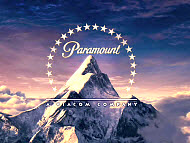
My Ratings: Moral rating: Good / Moviemaking quality: 5